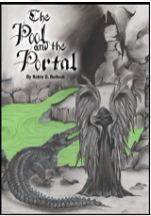Parallel Gospels 9b - The First Sign: Turning Water into Wine
John 2:1-12 Holman Christian Standard Bible (HCSB)
The First Sign: Turning Water into Wine
2 On the third day a wedding took place in Cana of Galilee. Jesus’ mother was there, and 2 Jesus and His disciples were invited to the wedding as well.3 When the wine ran out, Jesus’ mother told Him, “They don’t have any wine.”
4 “What has this concern of yours to do with Me,[a]woman?” Jesus asked. “My hour[b] has not yet come.”
5 “Do whatever He tells you,” His mother told the servants.
6 Now six stone water jars had been set there for Jewish purification. Each contained 20 or 30 gallons.[c]
7 “Fill the jars with water,” Jesus told them. So they filled them to the brim. 8 Then He said to them,“Now draw some out and take it to the chief servant.”[d] And they did.
9 When the chief servant tasted the water (after it had become wine), he did not know where it came from—though the servants who had drawn the water knew. He called the groom 10 and told him, “Everyone sets out the fine wine first, then, after people have drunk freely, the inferior. But you have kept the fine wine until now.”
11 Jesus performed this first sign[e] in Cana of Galilee. He displayed His glory, and His disciples believed in Him.
12 After this, He went down to Capernaum, together with His mother, His brothers, and His disciples, and they stayed there only a few days.
When:
On the third day - this could mean 3 days later.. or on Tuesday which is the third day of the week. Weddings were often held on tuesday because it was called the day of double blessing (in the genesis creation account, it was a day that it was gaid it was very good... twice)
Is there a timing significance that the 6 stone water jars of purification were there?
John says this is "this first sign". Does that mean that it is the first sign Jesus ever did.. or just the first one John is mentioning.
Where: in Cana of Galilee
significance:
- wine is a sign of joy and celebration
- this the third day, which was after the versus that said on the fourth day.. so it is the 7th day
- Moses turned water to blood as a sign of Judgement, Jesus turned water to wine.. a sign of new birth. the author of this site also says that the Miracles John points out are to prove more than Jesus as a prophet but as God incarnate. from this site also is the following:
" My hour has not yet come." compr (Jn 12:23) was not addressed to Mary but the reader. Jesus remembers that the prophets characterized the messianic age as a time when wine would flow liberally (e.g. Je. 31:12; Ho. 14:7; Am. 9:13–14; cf. 2 Baruch 29:5; 1 Enoch 10:19). Also in parables, wedding is a symbol for the consummation of the messianic age (e.g. Mt. 22:1–14; 25:1–13). Jesus is entirely correct to remind the reader that the hour of great wine, the hour of his glorification, has not yet come.
and this
They were made of stone used for ceremonial washing of certain utensils and of guests’ hands. We know from the Dead Sea Scrolls that such stone pots were used for ritual purification, confirming verse 6 (“ceremonial washing”). By performing His miracle in those stone urns, our Savior was testifying that He was filling the old religious urns with new life. F. F. Bruce said, “Christ (is) changing the water of Jewish purification into the wine of the new age.” Out from the old order of Jewish law and custom, Jesus was to going to bring forth something new, better and more efficacious. God is saving the best for the last. Some see in the number six a reference to incompleteness, one less than seven: the Jewish dispensation was incomplete until the coming of Jesus, who performs this miracle on the seventh day but the miracle was concerned with the transformation of water, not the provision of an additional water jar. Perhaps, the interpretation is, Jesus makes perfection out of every mortal imperfection.
Word Study:
- water
- wine
- wedding


Comments
Post a Comment